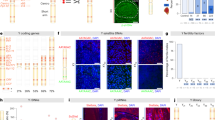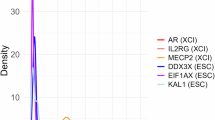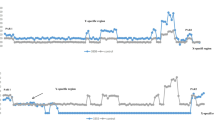Abstract
IN 1965, Jacobs et al. published their preliminary findings of a chromosome survey conducted at a maximum security hospital, The State Hospital, Lanarkshire, Scotland1. The most remarkable finding in the completed survey was the discovery among 315 men of nine patients with an XYY sex chromosome constitution. Their behaviour, together with their pattern of crime, has now been closely studied. The full clinical details of this investigation will be published elsewhere by us, and this communication directs attention to the ways in which the XYY males differ from males with an XY sex chromosome complement at the same hospital.
This is a preview of subscription content, access via your institution
Access options
Subscribe to this journal
Receive 51 print issues and online access
$199.00 per year
only $3.90 per issue
Buy this article
- Purchase on SpringerLink
- Instant access to the full article PDF.
USD 39.95
Prices may be subject to local taxes which are calculated during checkout
Similar content being viewed by others
References
Jacobs, P. A., Brunton, M., Melville, M., Brittain, R. P., and McClemont, W. F., Nature, 208, 1351 (1965).
Author information
Authors and Affiliations
Rights and permissions
About this article
Cite this article
PRICE, W., WHATMORE, P. Criminal Behaviour and the XYY Male. Nature 213, 815 (1967). https://doi.org/10.1038/213815a0
Received:
Issue date:
DOI: https://doi.org/10.1038/213815a0
This article is cited by
-
Disrupted-in-Schizophrenia-1
Current Psychiatry Reports (2008)
-
The XYY syndrome in children: A review
Child Psychiatry and Human Development (1972)
-
Crimino-biologic study of patients with the XYY syndrome and Klinefelter's syndrome
Humangenetik (1970)
-
Abnormal Sex Chromosomes and Mental Disorder
Nature (1969)
-
XYY Survey in an Institution for Sex Offenders and the Mentally III
Nature (1969)



